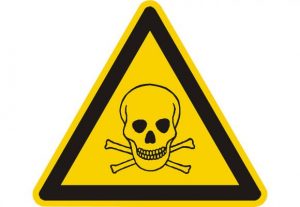
Poor liver function is not a joking matter and if it is left untreated, it can turn into liver disease which is often irreversible and fatal. Below are some signs that your liver function is simply not up to par.
Skin Problems and Liver Function
A yellowish hue to your skin is a telltale sign of liver problems but what many people don’t realize is that eczema, psoriasis, persistent rashes and acne are also signs that you liver health is not up to par. Your liver is responsible for filtering and eliminating toxins and excess hormones such as estrogen and testosterone. When your liver health is compromised its ability to filter these substances also becomes compromised, which results in extra toxins and extra hormones circulating in your blood. These substances can clog up sebaceous glands and hair follicles in your skin, which then causes inflammation and ultimately skin issues such acne and eczema.
Digestive Problems and Liver Health
Your liver is responsible for producing bile and releasing it for the digestion of food. The bile that is released separates fats that you consume so that digestive enzymes can then break them down. Symptoms such as an intolerance to alcohol and fatty foods, abdominal bloating, irritable bowel disease, gallstones, stomach pain, and constipation are all signs of liver issues.
RELATED READING: Avoid the 7 Danger Signs of a Toxic Liver
Fatigue and Your Liver
The liver plays a key role in supplying your body with energy. It is responsible for converting glucose (sugar) to glycogen, and glycogen is used for the production of energy. Your liver also stores extra glucose for later, so that if you require an immediate source of energy, you will have it on hand. When your liver health is compromised, its ability to store glucose and to supply you with a steady source of energy becomes reduced.
Allergies and Liver Function
Many people don’t realize this, but poor liver function can cause both environmental and food allergies. Your liver is responsible for cleansing your body and removing toxins, and this includes the toxins that contribute to allergies. When your liver is healthy, your body’s toxic load remains low, and it can better deal with environmental and food irritants, however, when your liver is unhealthy, your body’s toxic load becomes high, and even the slightest irritant can throw your immune system into full blown attack mode, resulting in allergic reactions. That is why the severity of your allergic symptoms can vary, and why sometime you might not even react to a substance that you are usually allergic to.
Additional Signs of a Poor Liver
Blood sugar problems can indicate poor liver health because your liver is the key regulator of glucose. Depression, brain fog, poor memory, an inability to concentrate and irritability can also indicate poor liver function because your liver needs to properly metabolize nutrients in order for your brain to receive e them. Another sign that your liver is out of whack is a poor immune system, because your liver helps your body to fight off infections. One final sign is hormonal imbalances, because a healthy liver will process and regulate the hormones effectively.